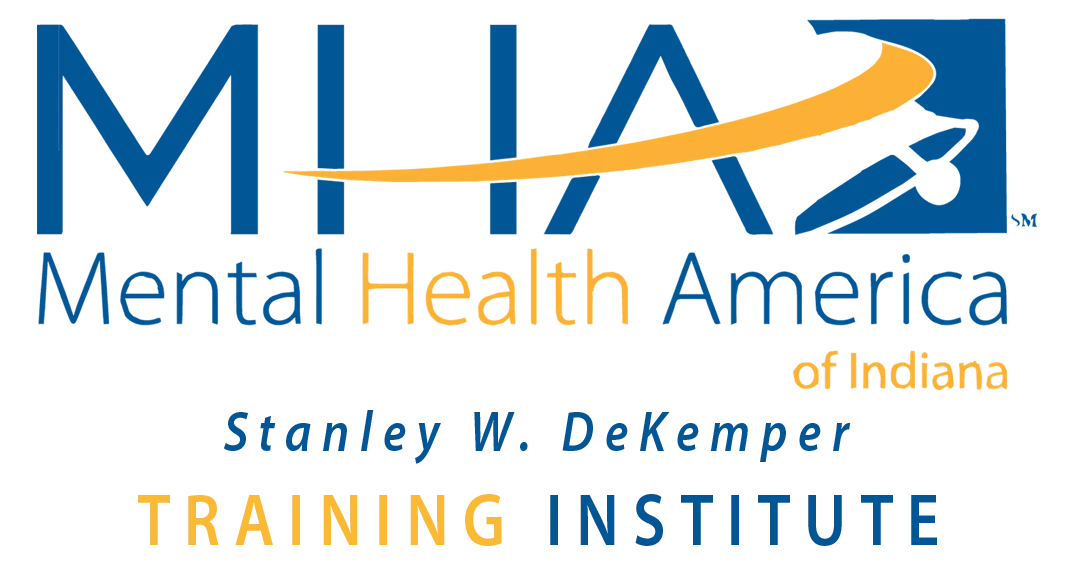Substance Use
Many skills in educational learning experiences . . .
Many skills in educational learning experiences such as motivation interviewing, trauma informed care and so much more!
– Shane
Addiction Counseling Ethics
DESCRIPTION
The Addiction Counseling Ethics course is designed to enable participants to explore the unique ethical dimensions and issues that a clinician may encounter in the provision of addiction treatment. The training will focus on the legal and moral issues that may surface while providing addiction treatment services. Training topics will include the definition of addiction counseling Ethics, recognized ethical standards, ethical responsibilities of addiction treatment, guidelines for ethical decision-making, and ethics of professional development for addiction services.
LEARNING OBJECTIVES
- Gain an understanding of the three ethical considerations in the counseling profession
- Gain a basic knowledge of the five ethical principles in the counseling profession
- Gain a basic knowledge of the guidelines for ethical decision making
Duration
6 hours (one day)
CEU Credits
6
Presented by


Psychopharmacology of Substance Use
DESCRIPTION
This course will provide the learner with an introductory knowledge on the psychopharmacology of substance use disorders through online interactive learning experiences. In addition to the learning objectives, attendees will explore how the information shared in each learning module directly impacts their current professional role, as well as how gaining basic knowledge in the psychopharmacology of substance use disorder helps them to provide effective services to the individuals and their families.
LEARNING OBJECTIVES
- Develop basic knowledge neurochemical mechanisms and how psychoactive substances affect the brain and body.
- Develop basic knowledge of psychoactive substances, chemical classifications, and the increase of designer drugs
- Develop basic knowledge of the etiology of substance use disorder reviewing biological, psychosocial, and contextual factors.
- Develop a basic understanding of diagnostic categories/classifications and levels of substance use disorders.
Duration
6 hours (one day)
CEU Credits
6
Presented by

Understanding the Science of Addiction
DESCRIPTION
Participants will consider addictions and case examples from a variety of theoretical perspectives. Science-based approaches to addiction treatment and recovery will be highlighted and explored. This course will examine addictions from biological, psychological, social, and spiritual domains. Additionally, individual, family, and cultural perspectives will be explored. This course will emphasize familiarity with the current research in the addictions counseling field. The course is held 9a-4:30pm EST. You will be expected to be on camera, participate, and be available for all hours of the training.
LEARNING OBJECTIVES
- Introduce the history of psychoactive substances according to class
- Examine the biopsychosocial factors involved in protective and risk factors
- Understand addiction as a brain disease
- Understand neuroplasticity and recovery
Duration
6 hours (one day)
CEU Credits
6
Presented by

Evidence-Based Practices
DESCRIPTION
This course will familiarize participants with SAMHSA’s Evidence-Based Practices (EBP) addiction resources and afford the participant opportunities to examine several addiction EBPs and assess the clinical application of these EBPs.
LEARNING OBJECTIVES
- Understand the definition of evidence-based practices
- Explore the differences between evidence-based practices and emerging practices
- Gain knowledge in the area of pharmacotherapy and medication assisted treatment
- Explore current evidence-based practices utilized in substance use disorder treatment programs
Duration
6 hours (one day)
CEU Credits
6
Presented by

Clearer understanding . . .
This course provided me with a clearer understanding of what evidence-based practices are and most importantly why it’s important to implement such practices. Immediately after the training, I was able to share with my staff the changes needed to ensure we are serving our residents well.
– Shawn
M.A.T. Education
DESCRIPTION
This three-day interactive training provides participants with a detailed understanding of medication used to assist with substance use disorders. 35 hours of distance (on-line) learning is a component of this course that is provided with admission purchase. It is highly encouraged this distance learning be completed prior to the ‘live’ training.
LEARNING OBJECTIVES
- Become familiar with the primary medications associated with the treatment of substance use disorder
- Develop an understanding of the role that medication can play in an individual’s recovery process from substance use disorder
- Increase ability to use treatment matching principles for individuals in recovery from substance use disorders
- Become familiar with a variety of recovery supports available to individuals’ entering recovery from substance use disorders
- Provide an overview of professional responsibilities in providing medication assisted treatment
- Develop a connection with other professionals working in the medication assisted treatment community
Duration
18 hours instructor-led (three days), and 35 -hours of self-paced on-line learning
CEU Credits
53
Presented by

Recovery Support Fundamentals: A Foundational Skills-Based Approach
DESCRIPTION
Recovery Support Fundamentals: A Foundational Skills Based Approach is an immersive and interactive exploration of what it means to provide person-centered, ethical, and professional recovery support in addictive, mental health, and crisis related situations. Skills such as motivational interviewing, supporting multiple pathways of recovery/wellness, stages of change and other skills will be explored and discussed. Join us to learn the fundamental skills to become an effective and supportive recovery support professional.
LEARNING OBJECTIVES
- Recognize how professional recovery support differs from personal recovery support.
- Identify skills domains of recovery coaching.
- Understand the role of recovery coaching related to a person’s substance use.
- Understand the role of recovery coaching related to a person’s mental health.
- How to recognize and respond to crisis situations.
- Learn how social determinates of health impact a person’s life.
- Explore the spectrum of harm reduction.
- Apply the stages of change.
- Demonstrate motivational interviewing.
- Develop effective group facilitation skills.
- Understand de-escalation techniques.
- Learn suicide prevention techniques.
- Recognize the unique approaches to family recovery coaching.
- Explore transference and countertransference.
- Identify methods to support those living with behavioral addictions and justice involvement.
- Understand goal setting and documentation.
- Practice skills used to provide recovery coaching services.
- Explore credentialing and career development.
Duration
35 hours (5-days)
CEU Credits
35
Presented by

Recovery Support Fundamentals: A Foundational Skills-Based Approach
DESCRIPTION
Recovery Support Fundamentals: A Foundational Skills Based Approach is an immersive and interactive exploration of what it means to provide person-centered, ethical, and professional recovery support in addictive, mental health, and crisis related situations. Skills such as motivational interviewing, supporting multiple pathways of recovery/wellness, stages of change and other skills will be explored and discussed. Join us to learn the fundamental skills to become an effective and supportive recovery support professional.
LEARNING OBJECTIVES
- Recognize how professional recovery support differs from personal recovery support.
- Identify skills domains of professional recovery support.
- Understand the role of recovery support related to a person’s substance use.
- Understand the role of recovery support related to a person’s mental health.
- How to recognize and respond to crisis situations.
- Learn how social determinates of health impact a person’s life.
- Explore the spectrum of harm reduction.
- Apply the stages of change.
- Demonstrate motivational interviewing.
- Develop effective group facilitation skills.
- Understand de-escalation techniques.
- Identify methods to support those living with behavioral addictions and justice involvement.
- Practice skills used to provide professional recovery support.
- Explore credentialing and career development.
Duration
35 hours (5-days)
CEU Credits
35
Presented by

Recovery Support Ethics
DESCRIPTION
Recovery support ethics is a two-day, interactive discussion around the ethical domains and criteria that recovery support professionals should follow to maximize outcomes for everyone the recovery support professional supports. All participants will learn more about how to maintain ethical standards around various topics that are involved with recovery support work. Upon completion of the course, participants will be able to maintain appropriate ethical standards in recovery support services.
LEARNING OBJECTIVES
- Define Ethics and how they relate to recovery support services
- Understand recovery support core competencies
- Learn various skills necessary to provide ethical services
- Identify processes for ethical decision making
- Create strategies for ethical decision making
Duration
16 hours (2-days)
CEU Credits
16
Presented by


